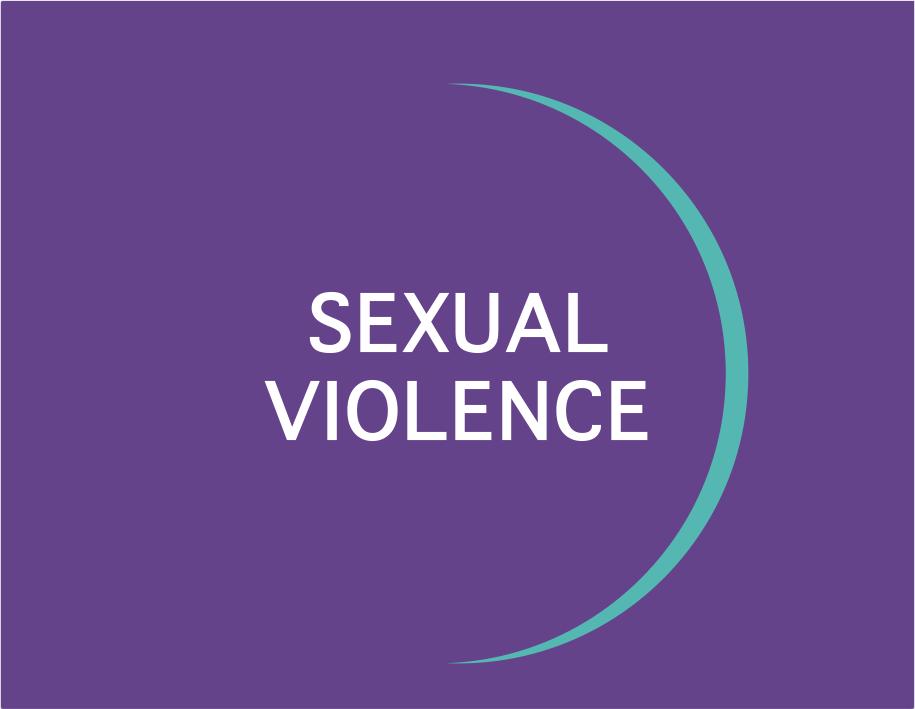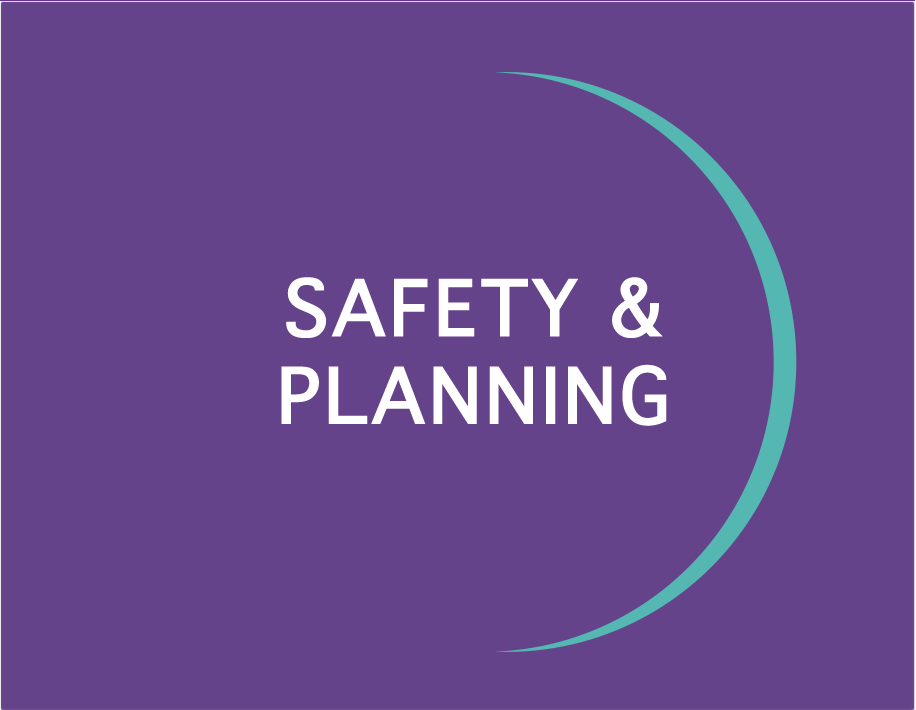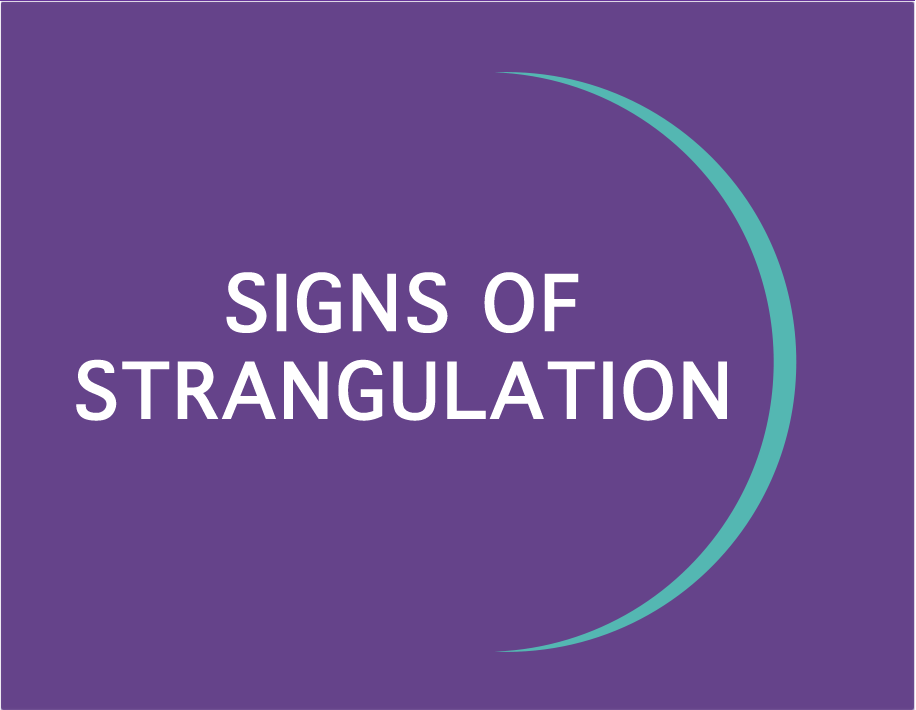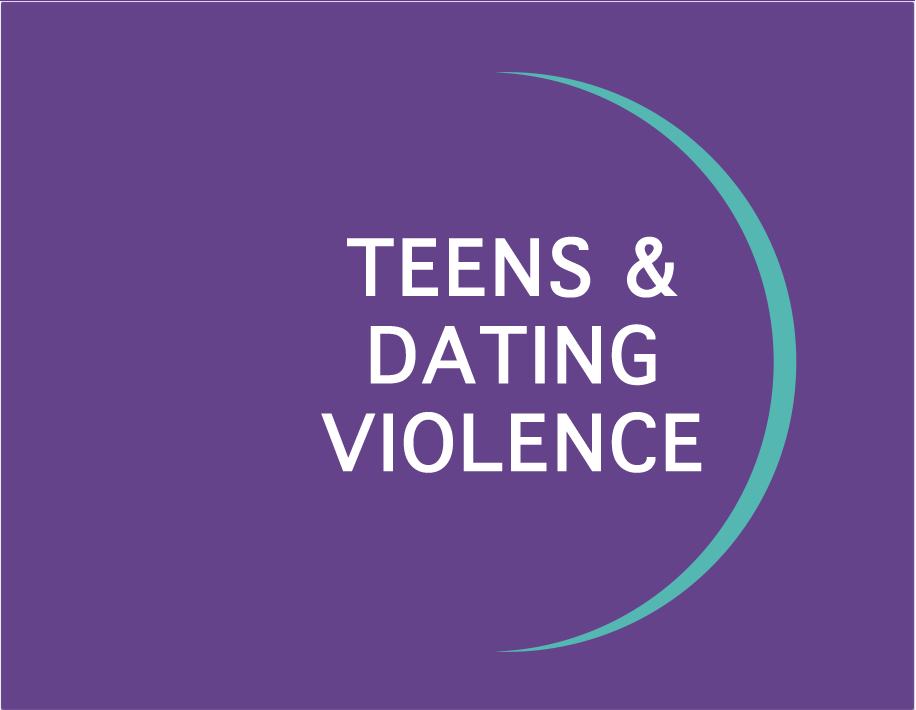What is dating violence?
The intentional verbal, physical, sexual, or emotional maltreatment of a dating partner for the purpose of gaining control and power over that person. Abuse is never the victim’s fault. Everyone deserves a loving and fulfilling dating relationship, if that is what they want.
Examples of abuse in dating relationships Include:
- Emotional Abuse: Making a partner feel insecure by name calling, using put downs, criticizing, or humiliating, attacking the person’s capabilities, and saying “nobody wants you.”
- Psychological Abuse (Mind Games): Making a partner feel guilty or “crazy,” blaming a partner for things that go wrong, or having the partner wait by the phone. Isolating the partner from friends & family, pressuring them to give up activities, sports, work, and hobbies, or keeping tabs on the dating partner when they go out by texting, calling, or dropping by. Intimidating a partner by breaking objects, punching walls, giving threatening looks, threatening to hurt them, their family, friends, or pets, or destroying treasured belongings. Acting extremely jealous, not allowing the dating partner to talk to anyone, or accusing the partner of flirting or having sexual intercourse with others.
- Physical Abuse: Shoving or pushing, squeezing a shoulder, restraining by holding a wrist or holding a hand tightly, shaking, pulling hair, slapping, punching, kicking, pushing out of a car, or strangulation/choking. Strangulation is one of the most lethal forms of domestic violence: unconsciousness may occur within seconds and death within minutes.
- Sexual Abuse: Any unwanted sexual contact, comments, or gesturing within a relationship; manipulating a partner into doing something sexual that makes them feel uncomfortable.
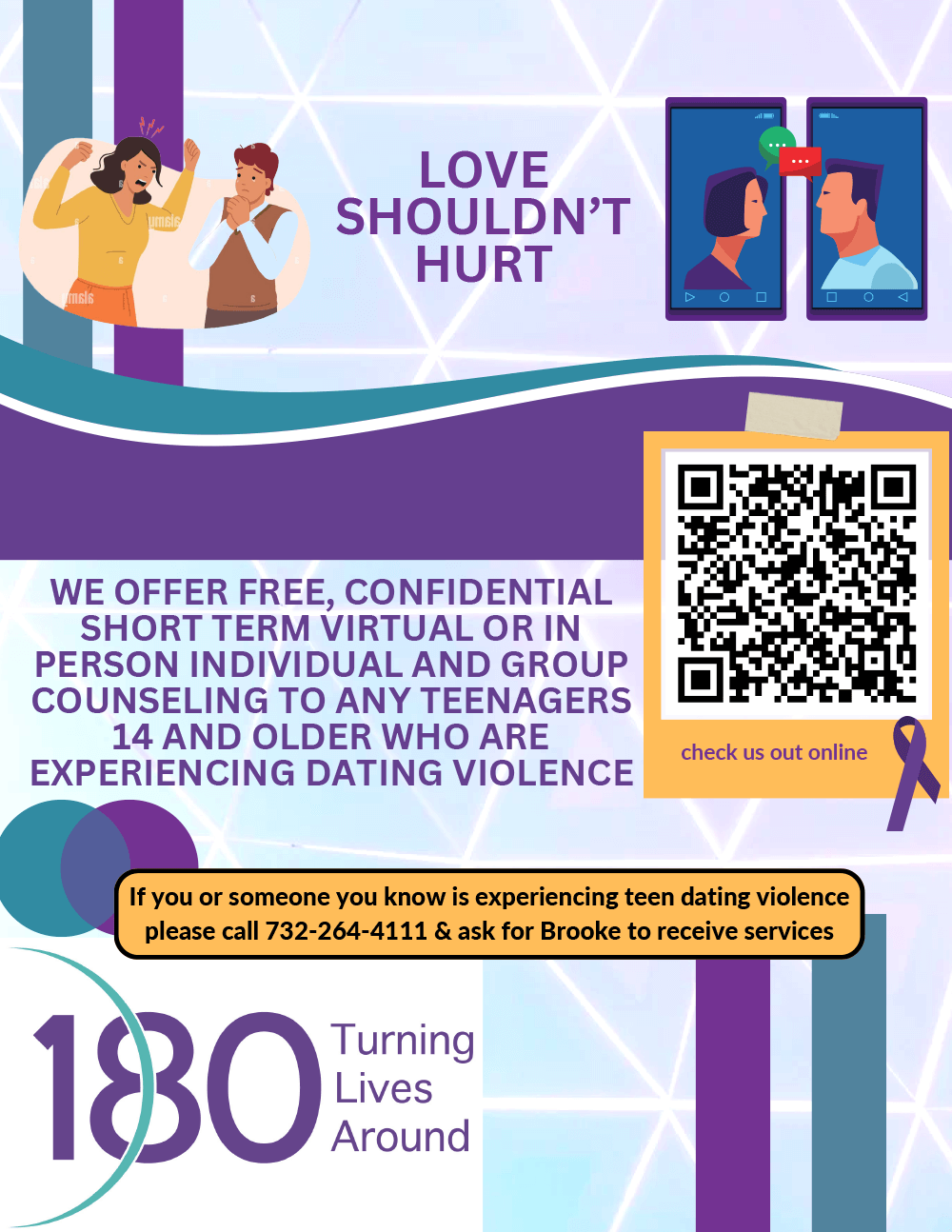
If you are in immediate danger, contact 911.
How do I know if I am being abused?
- Call you names?
- Tell you what to wear or how to do your hair?
- Get extremely jealous when you talk to others?
- Check up on you when you go out?
- Threaten you when you disagree with him or her?
- Ask you not to see your friends or participate in activities?
- Put you down or embarrass you in front of others?
- Destroy things that you care about?
- Force you to engage in sexual activities that make you feel uncomfortable?
- Ever hold you down, push, or hit you?


Your personal rights in a relationship:
- THE RIGHT to refuse requests without having to feel guilty or selfish.
- THE RIGHT to express my feelings, including anger, as long as I don’t violate the rights of others.
- THE RIGHT to be competitive and to achieve.
- THE RIGHT to have my needs be as important as the needs of other people.
- THE RIGHT to decide which activities will fulfill my needs.
- THE RIGHT to make mistakes and be responsible for them.
- THE RIGHT to have my opinions given the same respect and consideration as others’.
- THE RIGHT to change my mind.
- THE RIGHT to be independent.
- THE RIGHT to be treated respectfully.
- THE RIGHT to be cooperative and giving and not be taken advantage of.
- THE RIGHT to be safe.
Understanding Signs of a Healthy and Unhealthy Relationship
Understanding behaviors can help teens understand if they are in a potentially dangerous relationship.
UNHEALTHY RELATIONSHIPS
Many times, these behaviors are used to gain power or control and can have a negative impact on your well-being or day to day life. In some cases, these unhealthy behaviors can escalate to violence. If you feel like something might be “off” in your relationship, trust your gut and get help.
HEALTHY RELATIONSHIPS
Healthy relationships are ones that bring out the best in you. Even though no relationship is perfect, healthy relationships make you feel good almost all of the time and generally bring you up and not down. Here are some characteristics and behaviors of a healthy relationship. Keep in mind that with all of these behaviors, there’s a threshold for when it becomes unhealthy. For instance, loyalty is great, but at a certain point it can be unhealthy if you are being loyal to a partner who continuously disrespects you. At the end of the day, the below characteristics make you feel confident and supported in a healthy relationship.
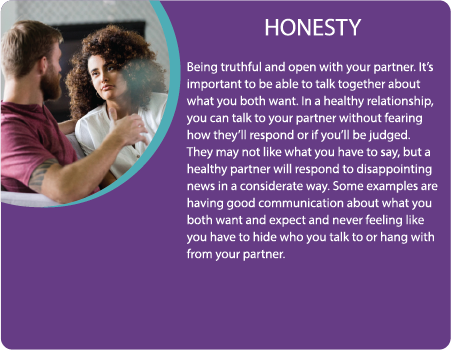
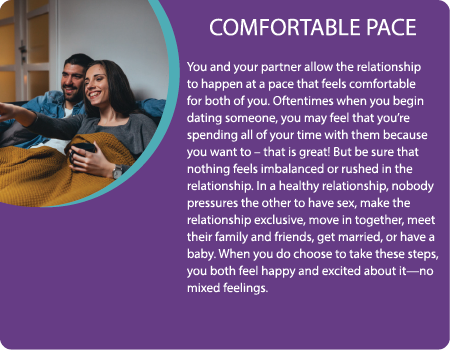
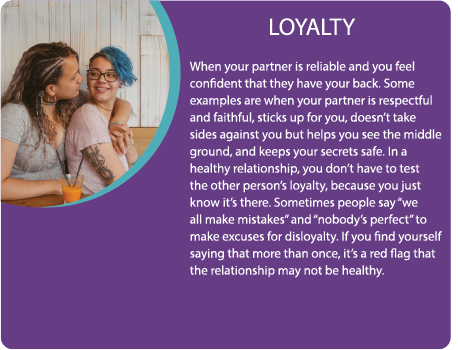
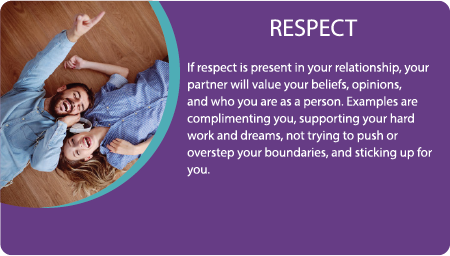
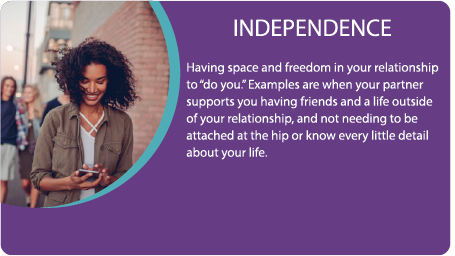
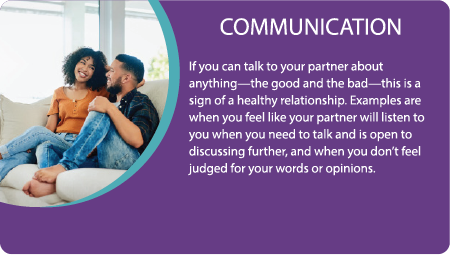
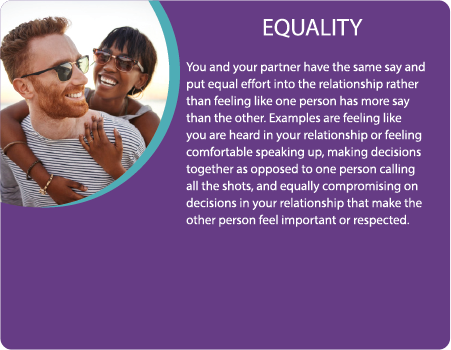
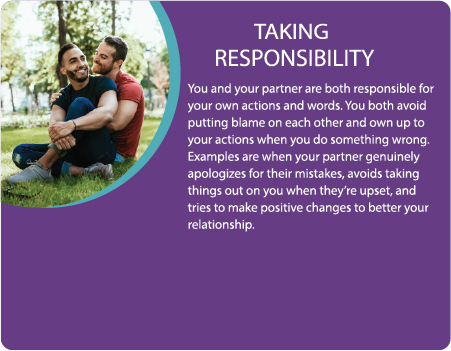
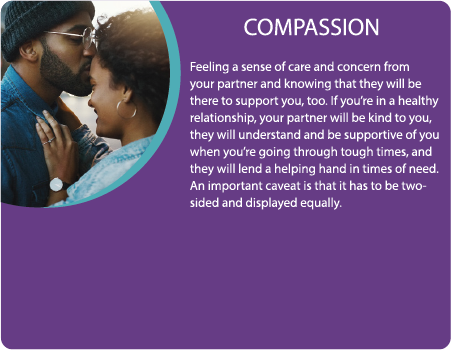
180’s hotline is available for any teen who would like to speak with a counselor.
The hotline is confidential and anonymous. 1-888-843-9262
Credit: Relationships 101: Know the Basics, One Love Foundation, Bronxville NY
Understanding Consent | Talking with Your Teen About Consent
- If someone is under the age of 13
- If someone is 13 or older and under the age of 16, they cannot consent to sexual activity with anyone over 4 years older than them
- If someone is under 18 years old and having sex in exchange for anything of value (money, shelter, clothes, etc.)
- If someone is under 18 years old and they are engaging in sexual activity with anyone who has authority over them or has the duty to care for them (a family member, someone in a supervisory role, teacher, coach, police officer, religious leader, group home staff, etc.)
- At any age when a person is: physically, intellectually or mentally incapacitated due to drugs or alcohol; unconscious or sleeping; incapable of providing consent due to lack of understanding from an intellectual, cognitive, mental disability or psychological disorder; developmentally disabled, they cannot consent to anyone who has authority over them or to a governmental caregiver; physically forced or coerced (manipulated, threatened, intimidated)
- MUTUAL—all agree and feel comfortable
- CHOICE—all are aware and want to engage in sexual activity COMMUNICATED—actively and thoroughly discussed by all participants
- INFORMED—risks are discussed and understood, and participants feel safe WITHOUT
- FEAR—there is no pressure, threats, coercion, bargaining, or manipulation
- Consent can be withdrawn at any time and for any reason.
- Direct communication is the best way to know whether someone else is comfortable. “Is it ok to…?,” “Can I…?,” “Are you okay with…?,” “Would you like me to…?,” “Is this still okay?”
- Listen to the response.
- When you have obtained consent: “Yes!,” “Let’s do it!,” “I’m okay with…,” “Sure!,” “I’m comfortable with…,” “I want to…”
- When you have not obtained consent: Silence, “Uhmmm,” “No,” “I don’t feel comfortable,” “I don’t want to anymore,” “I’m not sure,” “Stop,” “I’d rather not,” “Not now,” “I don’t know.”
- Respect one another’s boundaries and comfort levels.
- Check-in by communicating before and during any and all types of sexual activity, every time.
- Every time you engage in sexual activity
- For each sexual act
- For increased sexual activity or changes in sexual activity
- For recurring sexual activity, any time, even if consent was previously given
Special Information on Sexual Assault
- Sexual assault is never the survivor’s fault, no matter what they wore, where they were, whether or not they fought back, or whether or not they were drinking or doing drugs. It is also not a result of uncontrollable sexual desires. It is about power, control, and violence where sex is used as the weapon.
- Sexual assault is oral and/or genital penetration, no matter how slight, of a person without their consent by a perpetrator, who uses hands, genitals, and/or an object.
- As with sexual assault in other age groups, most teen sexual assaults fall under the category of date or acquaintance rape – assaults committed by someone that the person knows.
- According to the Center for Disease Control (CDC) 2019 Youth Risk Behavior Survey, 1 in 12 high school students experience physical dating violence and 1 in 12 experience sexual dating violence.
- An ever growing number of sexual assaults being committed are drug-facilitated sexual assaults. Drugs like GHB, which are colorless and odorless, are dropped into an unsuspecting victim’s drink. Shortly after the victim first feels the effect of the drug (extreme drunken-like feeling, nausea, vomiting), drug-induced amnesia takes over, and in many instances the victim is rendered completely unconscious. Sexual predators use this method because the victim exhibits little to no resistance during the assault and cannot account for the time that the assault took place, which becomes problematic in proving that it happened.
- Survivors of sexual assault may experience a range of emotions afterwards, including feeling guilty or responsible for the assault, feeling of betrayal, questioning their judgment and having difficulty trusting people.
How can I help myself, or someone I know, in an unhealthy or abusive relationship?
- If you are in immediate danger, call 911.
- Consider talking to a parent or other trusted adult about your relationship, such as a school counselor, or a friend.
- Adolescents who are being sexually abused can call the 24-Hour Sexual Violence Hotline at 1 (888) 264-7273.
- Call the 180’s 2nd Floor Youth Helpline at 1 (888) 222-2228, where all conversations are confidential and free of charge.
- Targeted to assist youth ages 10-24 to navigate any topic, 2NDFLOOR® is a statewide, confidential prevention helpline. Trained volunteers and staff provide 24/7 support, advice, and comfort, and steer callers to community resources they may not have known about through popular modes of youth communication, including by phone, text message, and online. For more information, visit www.2NDFLOOR.org.
- Plan for your safety.
- Seek counseling for a safe space to process your experience.














